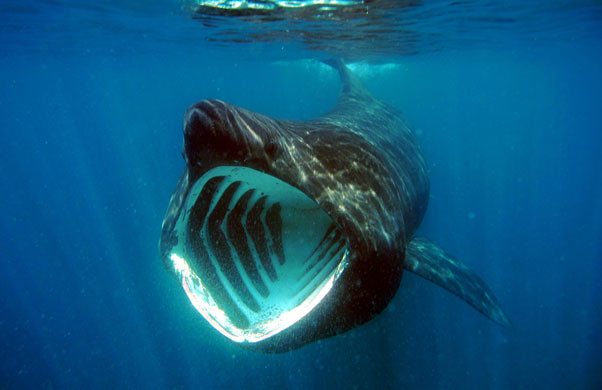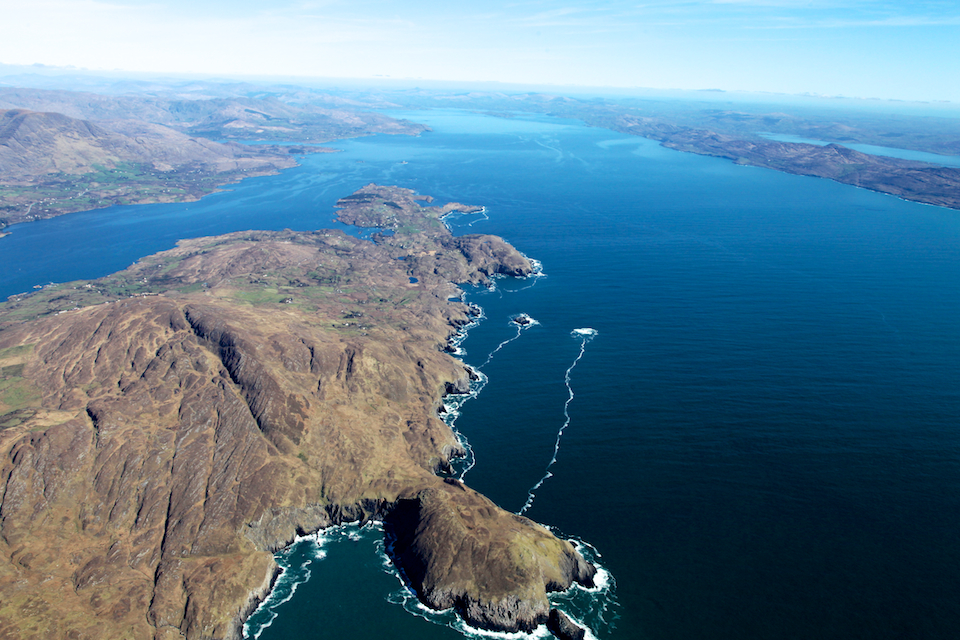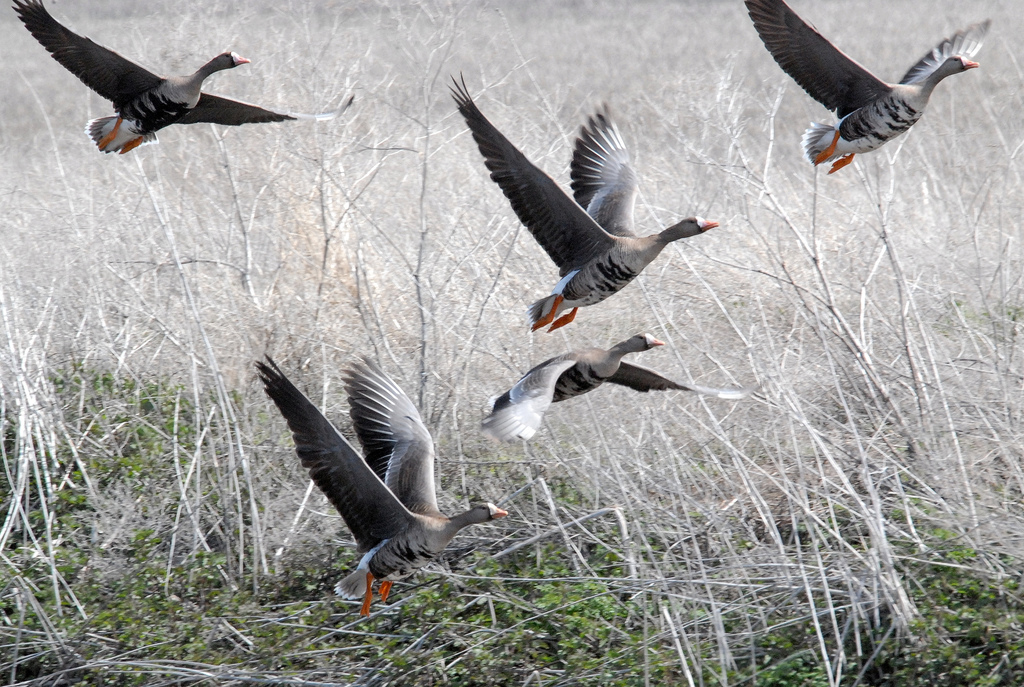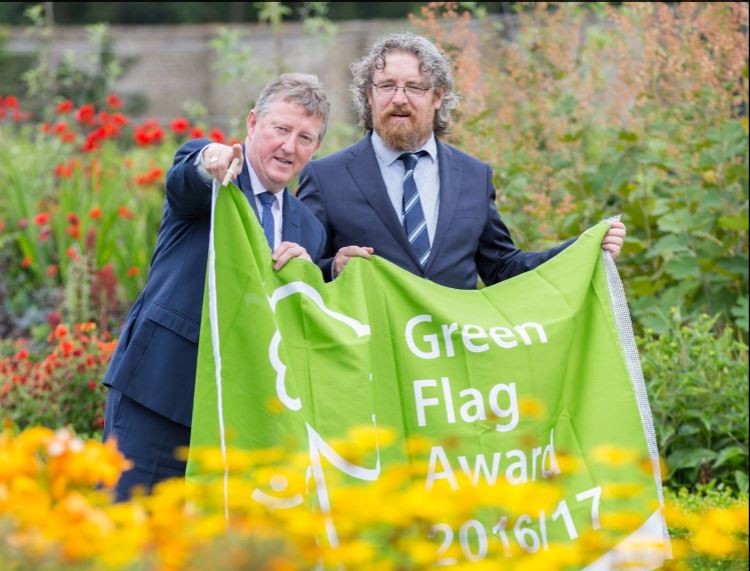Basking sharks: “look down at your watch or a piece of paper, and they’re gone”

22 March 2022
Over the past quiet months for the natural world, Simon Berrow’s been in the throes of what he calls “shark fever”.
“I dream about basking sharks all winter. I have shark fever, which is common amongst people who work with them. You become obsessed with them,” the Chief Science Officer of the Irish Whale and Dolphin Group (IWDG) said.
If he’s lucky, he might get one day out a year with them – but only if everything comes together just right.
First off, these marine giants need to be near the surface of the sea and the water needs to be calm. Spend any time on the Irish coast and you know the latter is often a tall ask.
And even if you find yourself in their company, there’s a good chance it won’t be for long.
“You could be out and surrounded by sharks, but then look down at your watch or a piece of paper – and they’re gone. You won’t see them the rest of the year,” according to Simon.
But that one sighting of their grey silhouette on its own is enough for the time being, he adds.
“It’ll keep you going. Shark fever – it’s a terrible affliction.”
Basking shark distribution
The basking shark is the second largest fish in the ocean, coming in just behind the whale shark. It’s up to 12 metres in length on average and can weigh up to six tonnes.
We still don’t know a whole lot about basking sharks. We know they feast on zooplankton with their mouths wide open and rise to the surface when their dinner does. However, we don’t have an exact number for their global population.
The most recent studies suggest there are about less than 10,000 basking sharks in the Atlantic, which Simon points out, “isn’t many when you think about how big the Atlantic is.”
But one thing we do know is that there are times when we have thousands of them in Irish waters, making our marine territory fundamental to basking sharks.
Recent sightings have suggested that they are moving northward in terms of where they stop off in Ireland. A colour-coded tag system helps spotters track their movements, and Simon tells us that they’re generally moving north.
They typically congregate in Kerry, Cork and Donegal – but Simon saw a number of them in West Clare during lockdown. There were reports of sightings in Achill island, but they haven’t been seen all that often out there recently.
The exact reason for their northward migration is yet to be determined, but it could be because of warming ocean temperatures. Basking sharks follow zooplankton and it’s difficult to track how exactly those tiny lifeforms are moving about.
Protected status
If you’re not up to scratch on marine life but the species’ name sounds familiar to you, it might be because basking sharks were recently declared a protected species.
According to the International Union for Conservation of Nature (IUCN), they’re endangered in North-East Atlantic waters.
Their decline can be linked to a number of factors, namely habitat degradation and how they were hunted up until the mid-1980s close to shore. They are also sometimes still caught in fishing nets in offshore areas and are still hunted on the high seas for their fins.
Giving them protection under the Wildlife Act will require anyone conducting marine activities to do high-level assessments and Simon has called it a “great first step”.
However, the allocation only covers their breeding and resting grounds. Granting the same status to their feeding areas will further consolidate their protection, he added.
The long-promised roll-out of Marine Protected Areas (MPAs) by the Government would further bolster their numbers, which will take a considerable amount of time to raise due to their slow reproduction rates.
But Ireland is in a unique position to facilitate their recovery, according to Simon.
“I think Ireland needs to celebrate that it’s a globally important place for basking sharks and we need to stand up to our responsibilities. Hopefully in time we’ll be able to roll-out marine-protected areas for basking sharks, which will be critical going forward.”







